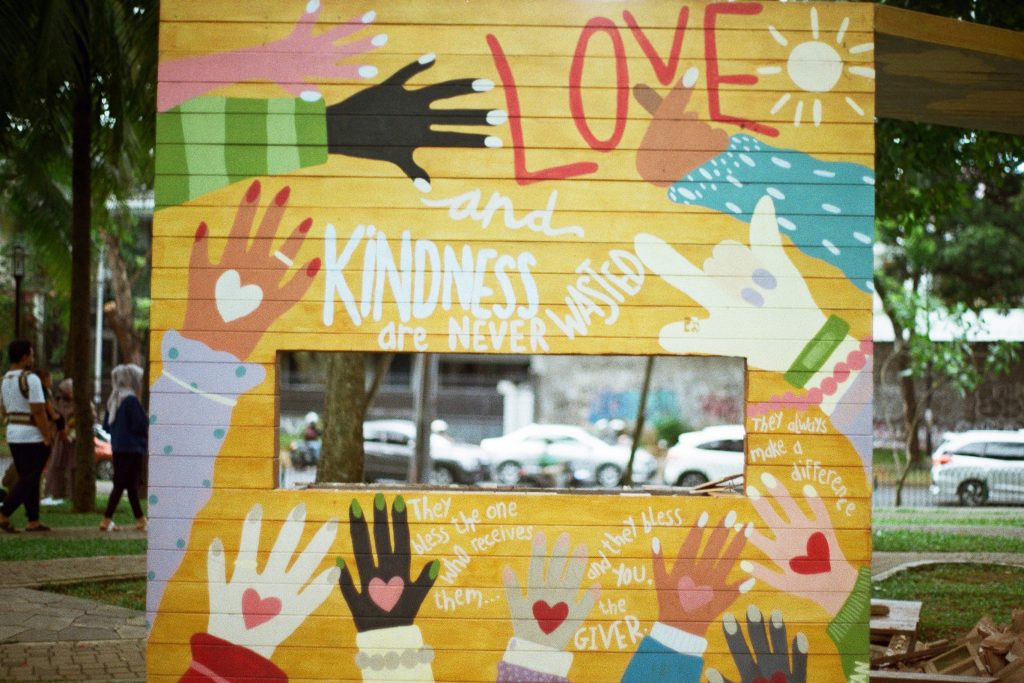
During Covid, at a time of fear and social isolation, we saw neighbours reaching out to the elderly and sick, offering to deliver their groceries and medicines, and many other expressions of kindness. Remember the teddy bears in the front gardens and rainbows displayed in many places, drinks in the driveway?
Why would we need a day to remind us to be kind? Well, we have Christmas Day to remind us about Jesus joining our humanity, Good Friday to remind us about Jesus’ death in love and Easter Sunday to remind us about Jesus Rising from the Dead and bringing us with him. We have Valentine’s Day to remind us to tell a person we love them, and ANZAC Day to remember the courage of many.
Of course, there’s nothing new in this. Almost all world religions promote kindness. Love is mentioned more than any other word in the New Testament and Jesus’ central message is to love God and love each other as we love ourselves. (Matt 22: 37-39). In the early Scriptures, we are told that the pagans commented, “See how these Christians love one another.” (1Peter 1:22) And from Tertullian, “It is mainly the deeds of a love so noble that lead many to put a brand upon us.” (The Apology, ch. 39, 197 AD)
Being kind to ourselves and to one another is important in maintaining our health and wellbeing. Long before the sciences proved this, the wisdom traditions knew this and taught the importance of compassion and connection for a meaningful life. A rich, full and meaningful life can be achieved even in the context of great suffering if we can act according to our deepest values as human beings.
Attachment theory and evidence from neuroscience point to the truth that human beings are firstly social beings. Our Triune God lives in relationship to God’s self. We reflect the very nature of God in this need to relate to and be in communion with one another.
We are in fact neurologically “hardwired” for connection. Reaching out in kindness gives the giver and receiver a boost of oxytocin (the love chemical), serotonin, dopamine, endorphins and reduces cortisol, thus building feelings of safety and connection. Whether from science, spirituality, or our vocation, supporting World Kindness Day is another way to infuse the world with the power of love.
We Josephites commit ourselves to continue God’s mission by immersing ourselves in the midst of life to empower others and bring hope. As Jesus said: “I have come that you may have life. (Jn 10:10)
The Random Acts of Kindness Foundation highlights and promotes the healing power of kindness by promoting World Kindness Day (13 November) and Random Acts of Kindness (RAK).
So, let’s be RAKtivists, doing random acts of kindness to those around us and not forgetting to speak to and treat ourselves kindly too. Confident that the power of Love in each of us will do this.
Audacious RAKtivists! Yay!
Would you like to become a RAKtivist? To help make kindness the norm? Visit www.randomactsofkindness.org for kindness ideas and resources.
Amanda Sturrock, Covenant Josephite & Frances Maguire rsj
